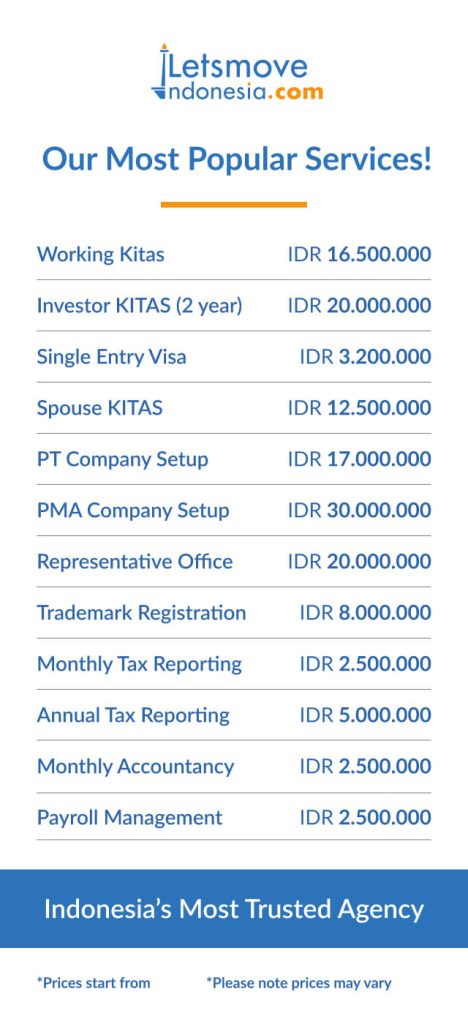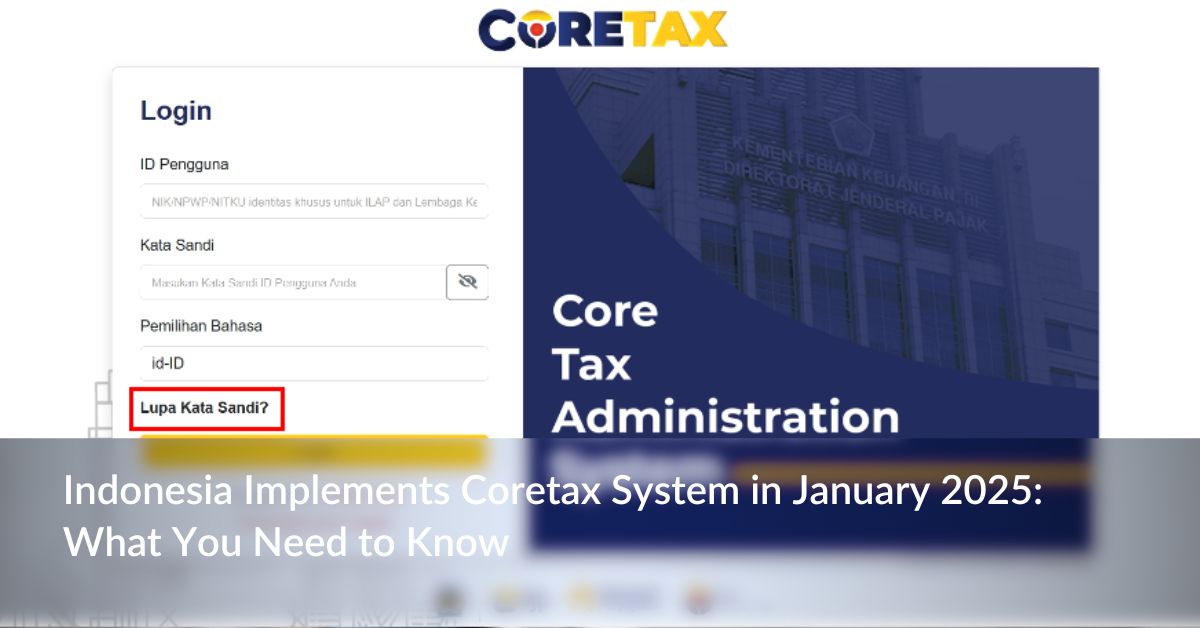Investing in property in Indonesia is a tempting prospect, but it comes with complexities and risks. Before you embark on this exciting journey, you must understand the significance of due diligence.
This article will explore the ‘what’ and ‘why’ of due diligence, covering topics like understanding the local property landscape, legal checks, and more. By the end, you’ll see why due diligence isn’t an option but a necessity when it comes to purchasing property in this stunning archipelago.
So, let’s start unravelling the key to successful property investment in Indonesia with LetsMoveIndonesia!
What is Due Diligence in Indonesia?
Due diligence is a process that benefits various stakeholders in a wide range of scenarios. Whether you’re an investor, a business owner, a potential buyer, or a decision-maker, due diligence serves as a valuable tool to minimize risks and make informed choices.
This is the initial screening of the documents provided to verify the property owners’ type of property title and the legality status of the documents provided.
Due diligence involves thorough research and verification of various aspects of the property, its ownership, and its compliance with the laws of Indonesia.
Why You Need Due Diligence in Indonesia?
There is a plethora of benefits to conducting Due Diligence before proceeding to the further process of your property ownership in Indonesia. Here are some of the general key reasons why you need due diligence in Indonesia:
- To assess the financial health and stability of potential partners and investments. Indonesia has a relatively high rate of business failures, so it is important to carefully assess the financial condition of any potential partners or investments.
- To identify and mitigate legal and regulatory risks. Indonesia has a complex legal and regulatory environment, and it is important to identify any potential risks before entering into any business deals or partnerships.
- To protect your intellectual property. Indonesia has a relatively high rate of intellectual property theft, so it is important to take steps to protect your intellectual property, such as trademarks, copyrights, and patents.
- To avoid corruption and fraud. Indonesia has a moderate score on Transparency International’s Corruption Perception Index, so it is important to be aware of the risks of bribery and fraud when doing business in Indonesia.
Due Diligence Functions for Different Property Roles
Due diligence can help you to identify and mitigate these risks and to make informed business decisions. In addition, Due Diligence can also secure property deals for various property ownership purposes, as stated below:
Investors: For those looking to invest in a company, project, or asset, due diligence provides an in-depth analysis of the potential risks and rewards. It helps investors ensure that their money is being placed in ventures with promising returns.
Homebuyers: In the real estate context, due diligence is essential for prospective homebuyers. It involves inspections, legal checks, and financial assessments to ensure the property’s value and suitability, safeguarding buyers from unexpected complications.
Mergers and Acquisitions: Companies seeking to merge or acquire another business rely on due diligence to evaluate the target company’s financial health, legal compliance, and overall viability.
Regulatory Compliance: Organizations need due diligence to comply with industry regulations and standards. It’s especially important in sectors like finance, healthcare, and environmental protection.
Risk Mitigation: In any decision-making process, due diligence helps identify and mitigate risks. It’s a preventive measure that can save resources and reputation.
What Are the Steps in the Due Diligence Process?
1. Initial Property Assessment (Audit):
Conduct a preliminary evaluation of the property to assess its suitability for investment. Consider location, accessibility, market demand, and potential for appreciation.
2. Legal Ownership Verification:
Verify the legal ownership of the property by reviewing official documents to confirm the seller’s legitimacy to sell.
3. Review Property Title:
Scrutinize the property title for accuracy and completeness, ensuring it aligns with the seller’s claims.
4. Check Land Records :
Thoroughly examine land records to confirm property boundaries, size, and ownership history.
5. Verify Property Ownership:
Confirm ownership details by cross-referencing with official records and previous transactions.
6. Check Land Use and Permits:
Verify land use regulations and permits to ensure the property’s intended purpose aligns with local zoning laws.
7. Investigate Legal Issues:
Investigate any legal issues related to the property, including outstanding debts, liens, or encumbrances.
8. Search for Legal Disputes:
Search for ongoing or past legal disputes involving the property or its owners.
9. Review Legal History:
Review the property’s legal history to identify any past legal challenges or disputes.
10. Verify Environmental Compliance:
Ensure the property adheres to environmental regulations, especially if it is located in ecologically sensitive areas.
11. Assess Tax Obligations:
Evaluate the property’s tax history and outstanding obligations to avoid unforeseen financial liabilities.
12. Examine Contracts and Agreements:
Review existing contracts and agreements related to the property, such as leases or joint ventures.
13. Compliance with Building Codes:
Verify the property’s compliance with local building codes and regulations to avoid costly renovations or fines.
14. Market and Regulatory Analysis:
Analyse the property’s market value and regulatory trends to assess its long-term investment potential.
15. Compile Due Diligence Report:
Document all findings and assessments in a comprehensive due diligence report for future reference.
16. Document Findings:
Maintain detailed records of all research, documents, and communication related to the due diligence process.
17. Provide Recommendations:
Offer clear recommendations based on the due diligence findings, highlighting any concerns or areas requiring attention.
18. Negotiation and Issue Resolution:
Engage in negotiations with the seller, addressing concerns and resolving any outstanding issues collaboratively.
19. Negotiate with Seller:
Negotiate the final terms of the purchase agreement, ensuring all parties are in agreement before proceeding.
20. Address Legal Concerns:
Resolve any legal concerns or discrepancies, securing necessary approvals and clearances.
21. Final Property Check:
Conduct a final inspection of the property to confirm it meets the agreed-upon standards and conditions.
22. Confirm Issue Resolution:
Ensure all previously identified issues have been resolved to satisfaction before finalizing the transaction.
23. Ensure Legal Compliance:
Verify that all legal and regulatory requirements have been met, securing the property’s legal compliance for the buyer.
By meticulously following these steps, potential buyers can navigate the due diligence process effectively, mitigating risks and ensuring a secure and transparent property investment in Indonesia.
Conducting due diligence before buying property in Indonesia is a fundamental step to safeguard your investment and ensure that you have a comprehensive understanding of the property’s legal, financial, and physical aspects. It empowers you to make informed decisions and minimizes the risks associated with property purchases in a foreign country, especially in Indonesia.
How LetsMoveIndonesia Helps with the Right Due Diligence Process?
LetsMoveIndonesia is your trusted partner in conducting a thorough due diligence process when investing in property. Our dedicated team, expertise, and extensive network empower them to conduct a comprehensive due diligence process on your behalf.
Expert Team: LetsMoveIndonesia boasts a team of experienced professionals well-versed in Bali’s property market intricacies. Their expertise enables them to conduct in-depth due diligence, covering legal, financial, and administrative aspects. Their understanding of local regulations and industry standards ensures a meticulous examination of potential properties.
Transparency and Communication: LetsMoveIndonesia maintains transparent communication throughout the due diligence process. They provide regular updates, share findings, and address any concerns promptly. Their open communication fosters trust and confidence, allowing you to make well-informed decisions based on accurate information.
Network of Partners: LetsMoveIndonesia leverages its extensive network of industry partners, including legal experts, notaries, and local authorities. This network enables them to access reliable resources and conduct thorough investigations. Collaborating with reputable professionals ensures the due diligence process is conducted meticulously and efficiently.
By choosing LetsMoveIndonesia as your partner, you can confidently invest in Bali’s property market, knowing that your due diligence is conducted with precision and integrity.
Found this article interesting? Then check out our other useful articles here!
Exploring Possibilities of The Expat Mortgage in Indonesia
Your Path to Property Ownership: Essential Steps for Obtaining Mortgage in Indonesia
Decoding Indonesian Mortgage Products: The Essential Guide for Homebuyers
Top Banks that Partnered with LetsMoveIndonesia for Mortgage
Get Your Desired Mortgage with LetsMoveIndonesia: What You Need to Know











